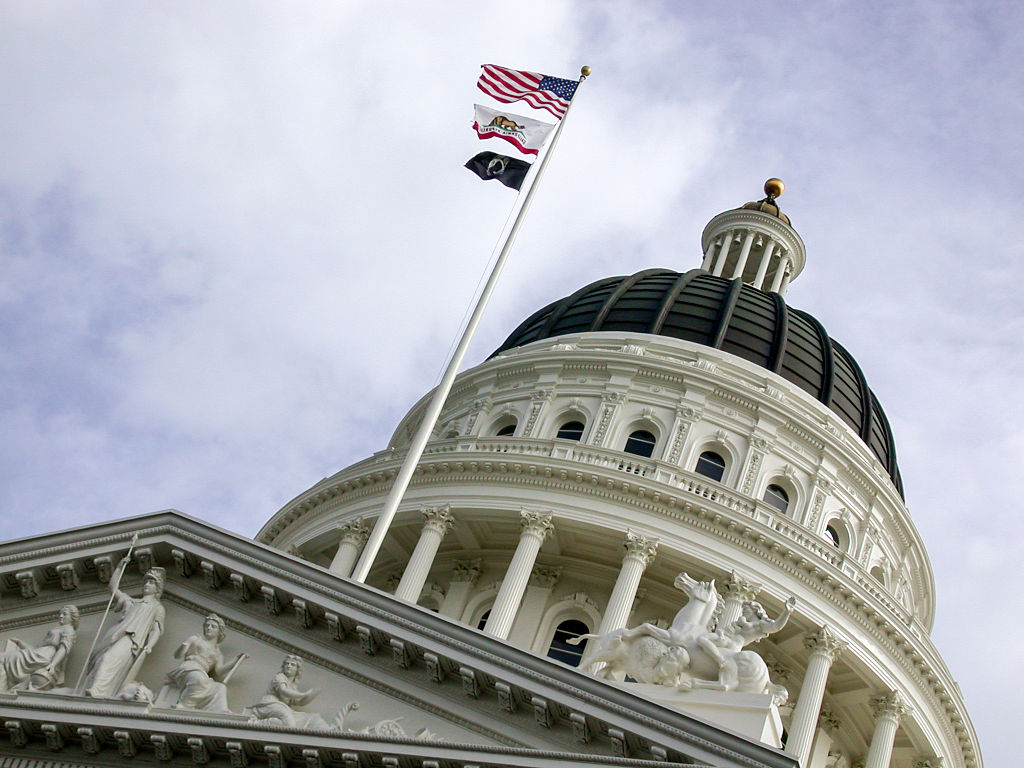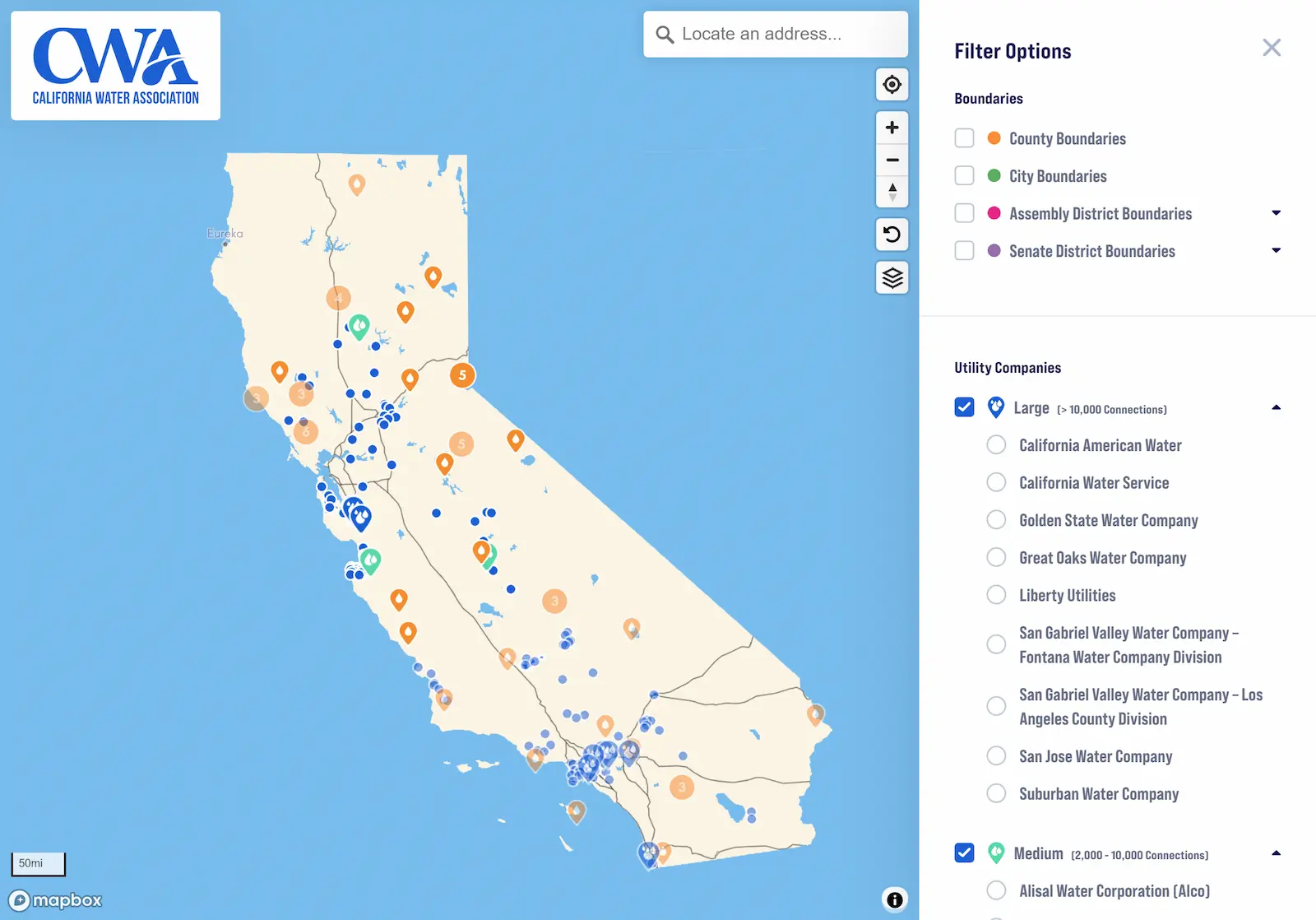Since the beginning of January, the California Water Association (CWA) has submitted several letters to the authors of pending legislation in California.
CWA communicated its support of AB 1928, introduced by Assembly Member Nora Campos, which proposes to postpone the State Energy Resources Conservation and Development Commission’s (SERCDC) adoption of performance standards and labeling requirements for landscape irrigation controllers and moisture sensors until January 1, 2018. The bill also would prohibit, on and after January 1, 2020, the sale of such equipment unless it meets the performance standards and labeling requirements. Additionally, AB 1928 would require the SERCDC, in adopting the standards and requirements, to consider developments in landscape irrigation efficiency occurring on or after January 1, 2010.” The bill has passed its policy committee and is awaiting action in the Committee on Appropriations.
As highlighted in the March edition of On Tap, CWA is sponsoring AB 2874, which was authored by Assembly Member Beth Gaines. The bill relates to fees imposed by Groundwater Sustainability Agencies (GSAs) and the need to ensure that customers of water utilities regulated by the California Public Utilities Commission (CPUC) are protected by ensuring the CPUC is notified when a GSA is imposing costs that ultimately will be passed on to utility customers. The bill passed the Assembly Water, Parks and Wildlife Committee on April 12 with a vote of 14 to 0. AB 2874 has been re-referred to the Committee on Appropriations.
In its letter of support for SB 919 to Senator Robert Hertzberg, CWA noted the bill “will support better coordination of California’s renewable energy resources and demand for power by water suppliers.” SB 919 creates an outlet for the excess electricity generated from the Renewables Portfolio Standards Program and incentivizes the development of local water supplies through desalination, brackish water desalting, water recycling or water reuse by decreasing the cost of electricity to those facilities. The bill passed the Senate Natural Resources and Water Committee unanimously on April 12 and is awaiting action in the Appropriations Committee.
CWA expressed support of SB 930 in a letter to Senator Ted Gaines. This legislation would reinstate the recreational exemption for Bear Lake Reservoir. CWA explained that its member company, Lake Alpine Water Company (LAWC), “provides safe, clean and reliable drinking water to nearly 300 homes, 20 businesses and 179 condominium units in Bear Valley in Alpine County.” Since LAWC sources drinking water from the Bear Lake Reservoir, which also is used for recreational activities, LAWC has a microfiltration system and robust monitoring program in place to ensure the water provided to customers meets all applicable drinking water standards. The bill passed the Senate on consent on April 28 and will move to the Assembly.
In a letter to Senator Ricardo Lara, author of SB 953, CWA expressed opposition to the legislation, which would, among other things, require the board of directors (Board) of the Central Basin Municipal Water District to consist of five elected members and two members appointed by the Los Angeles County Board of Supervisors. CWA contended the Board members should not be chosen by the supervisors, which would create less accountability and transparency to the retail water utilities and their customers who will be affected by Board decisions. CWA further contended that Board members should be selected based on their expertise and experience in water industry matters and that customers in the Central Basin should have Board representation that is directly involved in the management of the Central Basin. The letter also cited the State Auditor’s recommendation that the Board should comprise water purveyors. The bill currently is on the Appropriations Committee’s suspense file.
CWA supported SB 1112, Senator Anthony Cannella’s bill, which would clarify how small water utilities sell assets under the CPUC’s regulation. Of the 108 CPUC-regulated water companies, 94 would be subject to SB 1112. CWA emphasized that it had “worked constructively with the CPUC to draft the language that is included in the bill and believes this change will provide clarity regarding the sale of assets for regulated water or sewer systems with less than 2,000 service connections.” SB 1112 passed the Energy, Utilities and Communications Committee unanimously on April 19 and is awaiting action in the Appropriations Committee.
Taking the position of “oppose unless amended,” CWA noted in a letter to Senator Lois Wolk that SB 1317 does not solve the problem of protecting California’s aquifers. SB 1317 would prohibit new well construction in critically over-drafted basins and add a lengthy conditional-use-permit process for new well construction in high- and medium-priority basins. CWA’s letter argued this would create difficulty for public water suppliers in meeting the drinking water needs of their customers and explained that suppliers must have the ability to quickly respond to changes in drinking water supplies, including drilling new wells. To ensure flexibility in providing safe, clean and reliable water for customers, CWA asked that public water suppliers be excluded from the new requirements. The bill is awaiting action in the Assembly Appropriations Committee.
Sponsored by CWA and authored by Senator Cathleen Galgiani, SB 1456 passed out of the Senate Environmental Quality Committee on April 20 by a 7 to 0 vote and was re-referred to the Committee on Appropriations. The bill addresses loans made by the Drinking Water State Revolving Fund Program and the ability of CPUC-regulated small companies and districts to be eligible for the loan forgiveness provisions in the law. CWA’s Public Policy Committee Chair Evan Jacobs, of California American Water, and CWA Executive Director Jack Hawks testified at the April 20 hearing.
As bills continue moving through the Legislature, CWA will track them and respond appropriately on behalf of its members and their customers.





